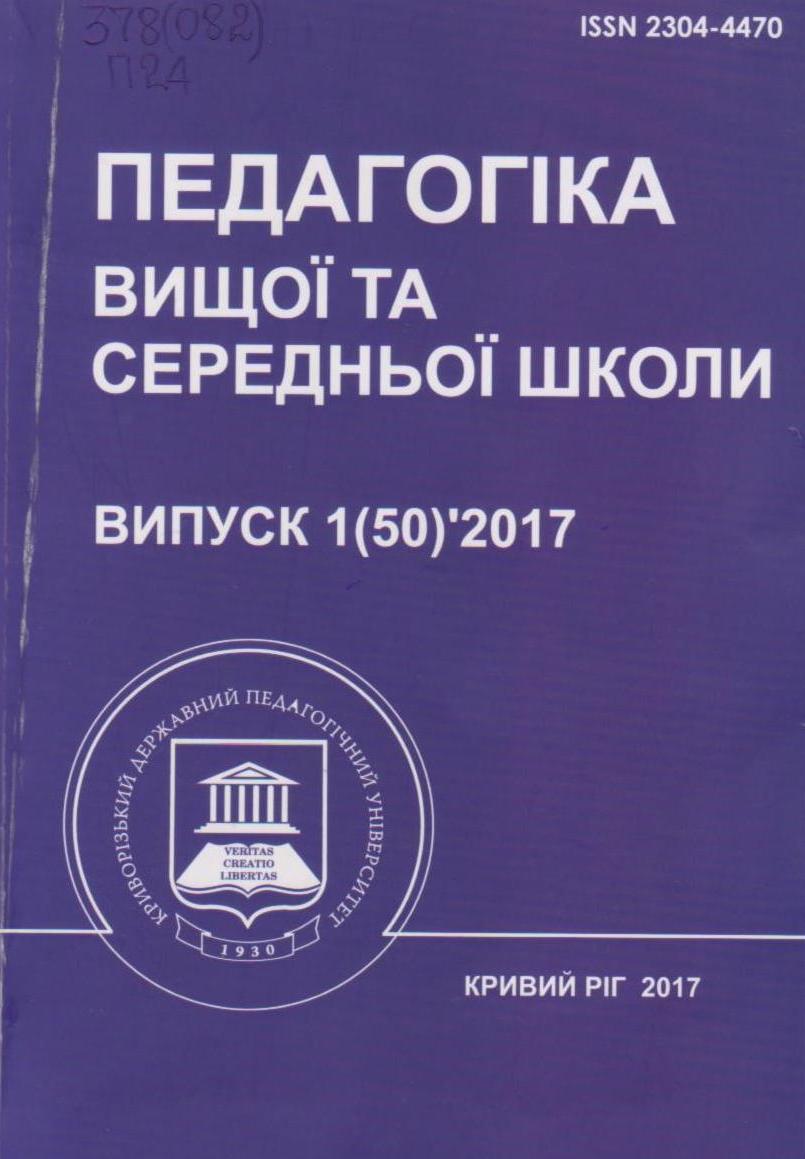The impact of motivation on foreign student’s academic achievement and learning outcomes in sciences and mathematics
DOI:
https://doi.org/10.31812/pedag.v50i0.1311Keywords:
motivation, foreign students, sciences and mathematics, intrinsic and extrinsic motivationAbstract
Ukraine educational institutions are increasingly feeling the pressure to become more internationalized. With the process of rapid globalization of businesses and cultures, education is also not restricted to national boundaries. It is a challenging stage that institutions when not only have to improve their academic quality, but also their internationalization. A foreign student population is a valuable part of education field since it is one of the factors that contributes to the higher education development. This study presents an investigation of motivation factors that play an important role in foreign students’ adaptation to the study of sciences and mathematics at the university. This paper examines foreign students’ motivation for studying at higher education institutions in Ukraine. The motivation factors that influence foreign students’ decision-making process are multifaceted because it is a combination of push and pull factors encouraging students to study abroad and, then, attracting students to a destination. Regardless of the students’ first language, it is imperative that educators support students’ legitimate resources in order to motivate them to build their competence, increase the ir confidence to communicate mathematically, and build a positive disposition toward sciences and mathematics. In the present paper, motivation is defined as a potential to direct behavior. This research examined how motivation (perceived control, intrinsic motivation, and extrinsic motivation), cognitive learning strategies (deep and surface strategies), and intelligence jointly predict long-term growth in students’ sciences and mathematics achievement. This paper finds that education in the based on intrinsic and extrinsic motivation, which can be used to adapt foreign students to the didactic requirements of sciences and mathematics.
Downloads
References
Бондаревская Е. В. Прогностическая роль концепции личностноориентированного образования в развитии целостной педагогической теории : Идеи личност.-ориентир. образования как прообраз пед. Культуры ХХI в. / Е. В. Бондаревская // Известия Южного отделения Российской академии образования. – Ростов–на–Дону, 1999. – Вып. 1. – С. 3–11.
Гершунский Б. С. Концепция самореализации личности в системе обоснования ценностей и целей образования / Б. С. Гершунский // Педагогика. – 2003. – № 10. – С. 3–7.
Занюк С. С. Психологія мотивації : [навч. посіб.] / С. С. Занюк. – Київ : Либідь, 2002. – 304 с.
Ильин Е. П. Мотивация и мотивы / Е. П. Ильин. – Санкт–Петербург : Питер, 2003. – 512 с.
Чаусова Т. В. Психологічні особливості мотивації навчальної діяльності майбутніх інженерів-педагогів : автореф. дис. на здобуття наук. ступеня канд. психол. наук : спец. 19.00.07 «Педагогічна та вікова психологія» / Т. В. Чаусова. – Київ, 2004. – 20 с.
Downloads
Published
Issue
Section
License
Copyright (c) 2017 Наталя Олексіївна Зінонос

This work is licensed under a Creative Commons Attribution 4.0 International License.




